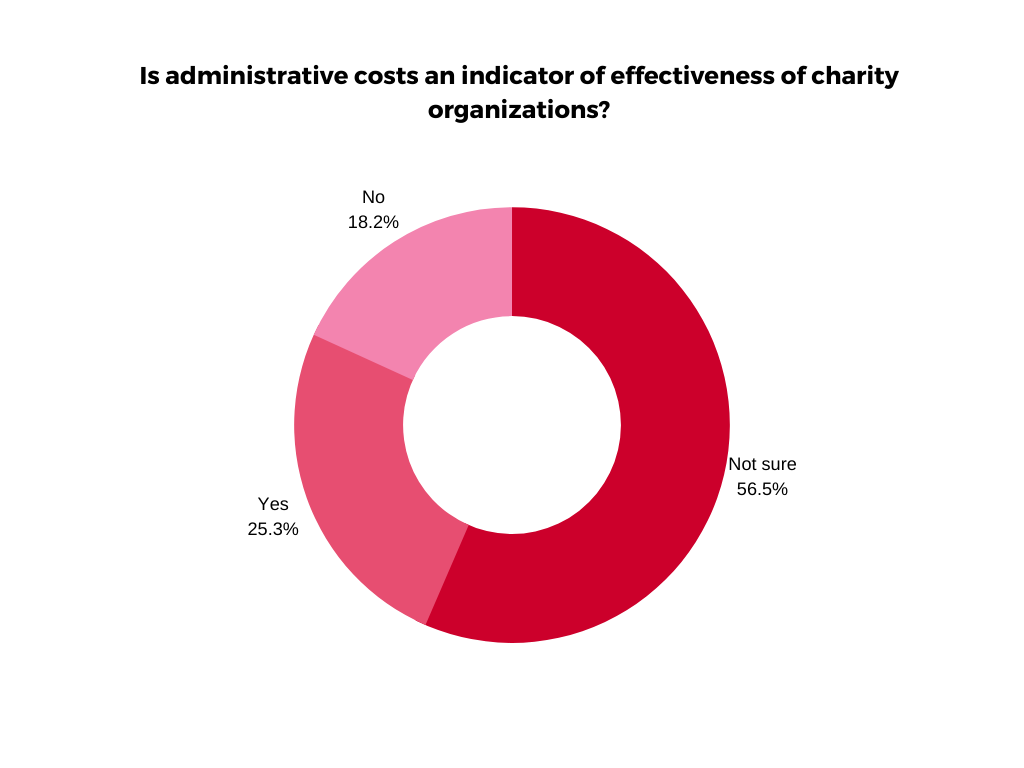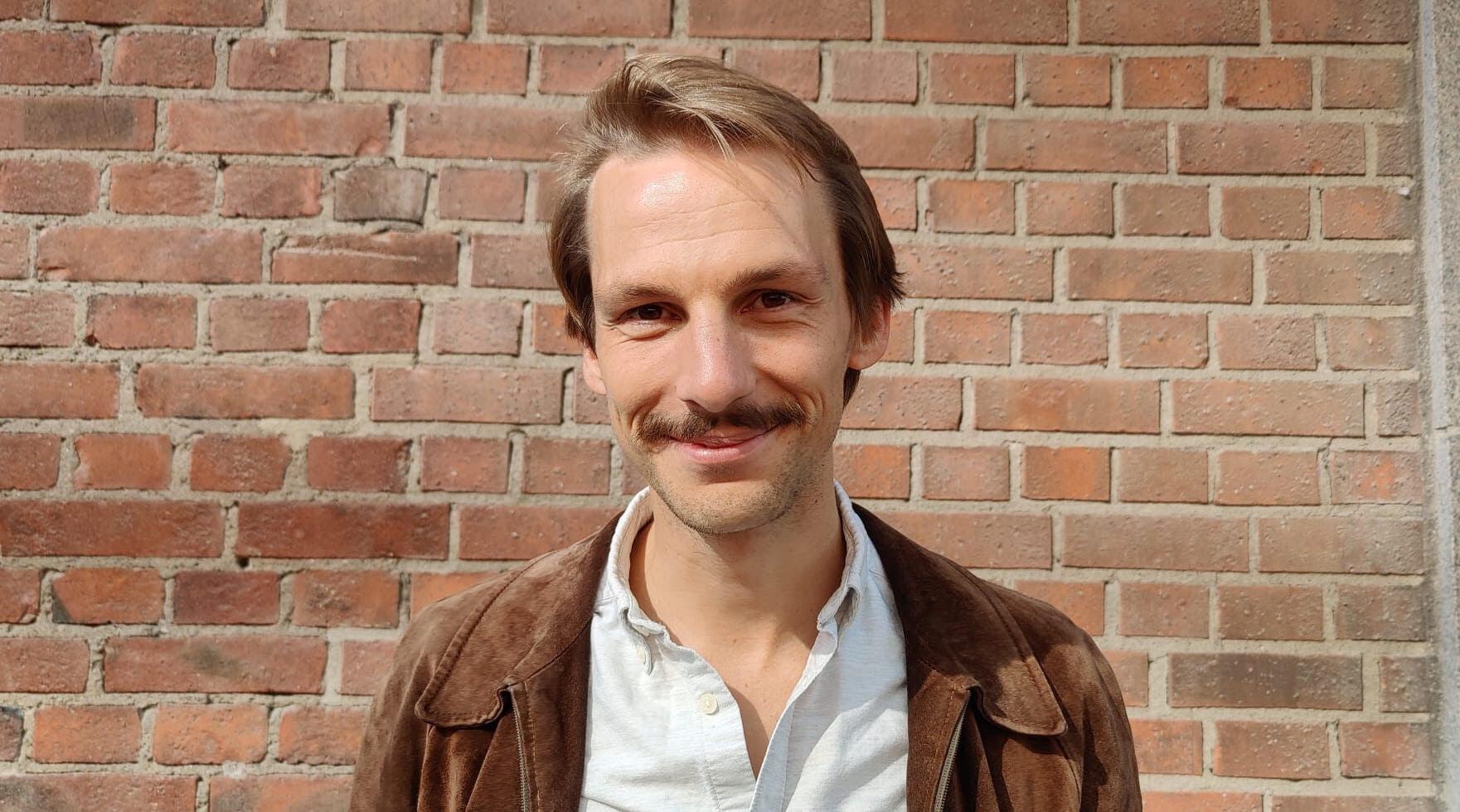
💸Effective charity takes giving to the next level
In the shadow of the big names, effective charities are setting a new standard for giving. This is what you need to know about giving to really make a difference.
Share this story!
Summary
📉 What people think
We donate more money to charities than ever before. There’s only one problem — most of us don’t know if our contributions make a difference.
📈 Here are the facts
How can we best help others? The movement of Effective Altruism actually has an evidence-based answer to that question.
💡 Optimist’s Edge
Yes, you can get 100 (!) times more bang for your buck when you donate to effective charities.
👇 How to get the Optimist's Edge
Can a single dollar really have a big impact? It absolutely can — when you know what to look for. It’s all about making conscious choices and choosing wisely.

📉 What people think
We donate more money to charities than ever before. While the numbers for 2021 have yet to be tallied, the upward trend appears poised to continue. For example, GivingTuesday — a day that encourages people to give back — in late November, generated a record-breaking $.2.7 billion in donations from 35 million Americans. Of course, most of us want to make a difference.
But do you know whether your contributions make the biggest possible impact? That, it turns out, is a question that tends to be harder to answer. Either we don’t give it much thought — our favorite charity knows best, right? — or we use parameters like administrative costs to gauge whether the organization appears to use funds wisely.
Our survey did indeed show more than 25 percent of respondents think the latter is a telling indicator of effectiveness while half did not know what to think.

So, is there any way of knowing?
📈 Here are the facts
Imagine you’re buying a smartphone. Will you apply your gut instinct or dig into customer reviews to find the best deal? If two models look exactly the same, but one costs 1,000 times more than the other, there is no question of which phone you would pick.
Few of us, however, think in those terms when it comes to charitable donations. Yet, we can.
“It’s easy to say we can’t compare different interventions, but quite often we actually can, and it often makes a big difference,” says Henri Thunberg, founder and operations manager of Ge Effektivt, a Sweden-based nonprofit that facilitates donations to the world’s most effective charities.

Ge Effektivt is rooted in Effective Altruism, a philosophical and social movement focused on answering one question: How can we best help others?
For all the programs devoted to bettering the world, a surprisingly large share has no effect at all. The mission of Effective Altruism is identifying the ones that produce exceptional results. Programs that do the most good per dollar spent — lives saved, for example — rise to the top and receive an official recommendation.
Many of the recommendations come from GiveWell, a nonprofit that spends as much as 20,000 hours a year assessing the effectiveness of select global health and poverty programs. In 2020, GiveWell donors contributed $247 million to the recommended charities, a 60 percent percent year-over-year increase.
But contrary to popular belief, administrative costs take a backseat to other criteria. Instead, organizations that demonstrate superior transparency, cost-effectiveness, potential for growth, and evidence-based impact have the best chance of receiving the seal of approval. Chances are you've never heard of these effective charities.
So, what does effective giving look like put to practice?

💡 Optimist’s Edge
Let’s say you are going to donate $1. If you considered a charity and found that ten percent would go to administration, you may be tempted to conclude only 90 cents would be left for your cause. That’s when the effectiveness of the program comes into play. With the right choice of charity, you can turn that dollar into the same impact that $100 dollars would with another charitable organization.
“That difference in effectiveness is not unusual but the norm when you compare the best organizations to the average ones,” Henri Thunberg says.
To borrow a practical example from the main website of Effective Altruism: What is the most effective intervention to reduce the spread of HIV and Aids if you were going to donate $1,000 dollar? Should you contribute to antiretroviral treatment, condom distribution, or education for high-risk groups?
Evaluations of each intervention gave a decisive answer: Education saves 27 years of healthy life compared to only one year for the treatment.
When you realize the impact really can be measured, you can donate accordingly. And it doesn’t stop at global health interventions. If you want to donate to climate-related causes (animal welfare is another category), evidence-based research from Giving Green shows pouring money into policy advocacy has far greater impact than efforts to reduce your personal carbon footprint (although you can, of course, pursue both).
“I’m myself an environmental nerd, and try to reduce my emissions,” says Henri Thunberg. “But I think the debate would greatly benefit from asking, ‘What can my money accomplish if I used them effectively?’”
So, what can you do?
👇 How to get the Optimist's Edge
Donate effectively, of course
If you live in a high-income country, you belong in the top five percent of global incomes. But rather than randomly donating to well-known organizations, you now know the value of looking beyond the big names. Here are five examples that passed the rigorous assessments and made the list of recommended charities:
- It costs only $5 to buy a net to protect a child in sub-Saharan Africa from being bitten by malaria-carrying mosquitos. The program by the Against Malaria Foundation is rated exceptionally strong.
- Hundreds of millions of people are infected with parasitic worms. For $1one dollar, you can deworm one child, a simple intervention that will keep the child in school and potentially lead to an increase in lifetime earnings. Evidence Action and SCI Foundation are two of several organizations on the list.
- GiveDirectly is doing just that. The organization supports direct cash transfers to families in deep poverty, primarily in Africa. Many high-quality studies show that recipients use money to buy goods that improve their lives.
- Help transform carbon to a resource. Carbon180 is a policy advocacy organization that focuses on accelerating the development and use of carbon removal technologies.
- The Wild Animal Initiative is a top pick of Animal Charity Evaluators. A donation contributes, among many things, to the creation of an academic field dedicated to animal welfare.
Work it
Which career will allow you to do the most good? 80,000 Hours has the answer. Named after the amount of time you spend working during your lifetime, the nonprofit organization is dedicated to helping people leverage their career for a cause.

Take the Giving What We Can pledge
In 2018, Niklas Holmberg made a life-changing decision, he decided to take the Giving What We Can pledge. This means the Swede is one of 7,600 people who have pledged to give at least 10 percent of their income to effective charities. And they are in notable company. Rutger Bregman, author of “Utopia for Realists: How We Can Build the Ideal World;” Sam Harris, the American philosopher; and José González, a Swedish indie folk singer-songwriter, have all taken the GWWC pledge. Will you join the growing community?
Start your own charity
The world can’t get enough of high-impact charities. Charity Entrepreneurship, for instance, features an incubation program to get you started. Designed by founders for founders, the two-month course teaches you everything from management to fundraising in real-world projects.
Read more
- The end of malaria may be coming. Read about a new preventive treatment to protect vulnerable children.
- How much carbon dioxide does each country emit? These satellites are keeping close track.
America’s Top 10 Charities
- United Way
- Feeding America
- Salvation Army
- St. Jude Children’s Research Hospital
- Direct Relief
- Habitat for Humanity
- Americacares
- YMCA of the USA
- Boys & Girls Club of America
- Compassion International
Source: Forbes
❓What else can you do?
Feel free to share more ideas with other Premium Supporters in our Facebook group.
By becoming a premium supporter, you help in the creation and sharing of fact-based optimistic news all over the world.


